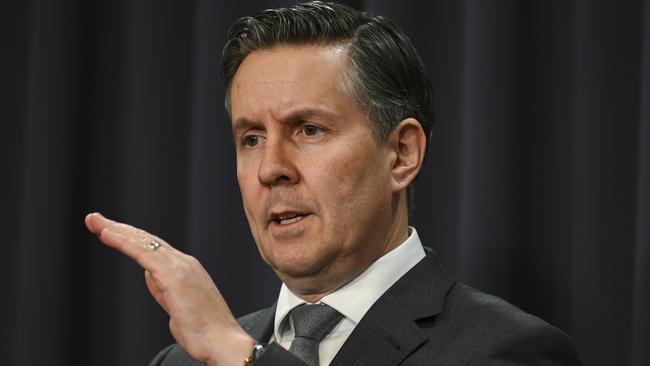Shift to 60-day drug scripts in pharmacy shake-up
The federal government is to push through changes allowing patients to be prescribed 60-day supplies of a large host of medicines in a shake-up of the Pharmaceutical Benefits Scheme.

The federal government is to push through changes allowing patients to be prescribed 60-day supplies of a large host of medicines in a shake-up of the Pharmaceutical Benefits Scheme that will save many consumers hundreds of dollars a year.
The initiative contained in the upcoming budget enacts a five-year-old recommendation of the Pharmaceutical Benefits Advisory Committee long opposed by powerful lobby groups.
The change is set to affect at least six million Australians, who will also save hundreds of dollars in gap fees every year for doctors’ visits as they will not need to return for new scripts so often.
The PBAC called for the change to apply to 143 commonly prescribed medicines in 2018. Currently, patients have to go back to the pharmacy to get a new pack of many common

medicines every month, paying a PBS co-payment of $30 every time, or $7.30 for pensioners.
Under the change to 60-day dispensing, even patients on just one medication will save $180 a year as they will only have to pay the PBS co-payment once. With many people, especially elderly, on three or more medications, some consumers will be saving thousands of dollars a year. Those with chronic conditions will save the most. The government estimates the shift to longer prescribing will save the federal budget $1.6bn over the next four years.
“This cheaper medicines policy is safe, good for Australians’ hip pockets and most importantly good for their health,” Health Minister Mark Butler said.
“Pharmacies already do much more than just dispense medicine and the government is supporting our trusted pharmacists to play an even bigger role in the healthcare of Australians.”
In moving to finally implement the PBAC advice, Mr Butler has stared down the Pharmacy Guild, which ahead of the change, revealed in The Weekend Australian, was claiming the policy would result in mass medicine shortages and rip $3.5bn from community pharmacies over the next four years.

“If the federal government proceeds with this proposal, everyday prescription medicine will be put into severe shortages lasting months, not days or weeks,” Pharmacy Guild president Trent Twomey said.
The nation is already suffering medicine shortages but they have little to do with prescribing arrangements. Pharmacists stand to lose a slice of their income in lost dispensing fees that they receive every time a script is filled, which cover the costs of providing services to patients and storing and preparing medication.
However, they are to some extent protected by a controversial clause in the five-year community pharmacy agreement signed between the previous government and the Pharmacy Guild that compensates pharmacies if the number of prescriptions they issue in any one year drops by more than 2 per cent.
The Australian Medical Association said it was “delighted” patients would save money on healthcare and be granted more convenience. AMA president Steve Robson said the measure might help have some effect on easing the crisis in GP accessibility as fewer people would need to visit their doctor for a new script.
Professor Robson said the concerns about medicine shortages were unfounded. “The recommendation for this came from the same body that monitors medicine shortages and they’ve made it absolutely clear they anticipate no effect,” he said.
“It’s not as if people are taking more medicines. … so it should have absolutely zero effect on supply.”
The policy is set to come in from September 1 in a staged rollout.







To join the conversation, please log in. Don't have an account? Register
Join the conversation, you are commenting as Logout